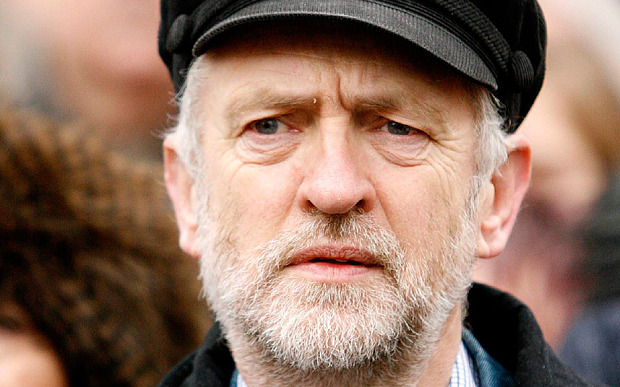The best funds to hold going into the general election

| Master Investor Magazine
Never miss an issue of Master Investor Magazine – sign-up now for free! |
The run up to the general election could be a volatile period for UK investors and the outcome on Friday 13 December might turn out to be a seismic moment for the markets, so it is vital to make sure that you are comfortable with your portfolio.
Whatever your personal political preferences it is important to be objective when assessing the impact of the different possible outcomes. The recent performance suggests that a Conservative majority would result in an increase in the value of the pound against the other major currencies and would lead to a recovery in domestically-oriented shares and funds.
Some of these areas have already come back quite strongly since the August lows when there was a real prospect of a hard Brexit, but if the Conservative lead continues to narrow in the polls and we end up with another hung parliament or a Corbyn-led government they could give back most or all of these gains.
If we use this as our working hypothesis, we can see which areas have already benefited and which could have further to go, while also identifying how to keep the overall risk to an acceptable level.
UK domestic stocks and funds
The early beneficiaries of the move away from a hard Brexit have been the more highly traded domestically-oriented UK stocks that have seen their shares surge on the improvement in sentiment. Examples include Lloyds Bank (LON:LLOY) and BT (LON:BT.A) with gains since early August of 25% and 20% respectively, despite poor stock-specific results announced during the period.
Some of the mid-cap investment trusts that invest in the domestically exposed FTSE 250 constituents have also come back strongly. A couple of prime examples are Mercantile (LON:MRC) and Schroder UK Mid Cap (LON:SCP) with returns since early August of 17% and 14% respectively, with both experiencing a sharp narrowing of the discount.
One investment trust that is especially sensitive to the result of the general election is Aurora (LON:ARR), whose share price is up 20% since early August. This trust uses a value approach to invest in a concentrated portfolio of between 12 and 20 UK stocks with the largest positions including: EasyJet, Sports Direct, Bellway, Randall & Quilter and Lloyds Bank.
Some of the funds that invest in the less liquid UK small cap stocks have yet to see much benefit and could do well after a favourable election result. One such is the Henderson Opportunities Trust (LON:HOT), which is only up 8.5% since the start of August and is available on a 17% discount to NAV.
Another potential beneficiary is British Land (LON:BLND), a real estate investment trust (REIT) with significant retail exposure. It is yielding 5.4% and trading on a 33% discount to the latest available NAV.
All of these funds could do well in the event of a majority Conservative government, but they could be amongst the worst hit in any other scenario. The obvious way to reduce the risk is to offset some or all of your UK domestic allocation against your overseas exposure.
Overseas exposure
International funds or those that invest in UK stocks with significant overseas earnings would benefit from a fall in the pound following a hung parliament or a Labour government, yet would suffer if the Conservatives take control and the pound rallies. The recent performance of the currency markets could give some indication of the extent of the likely reaction.
In early August during the talk of a hard Brexit the GBP/USD exchange rate fell to 1.2, but it has since recovered to 1.29, an increase of 7.5%. Prior to the EU referendum it was trading at 1.45, so in theory there could be as much as another ten or twelve percent to go on the upside.
| Master Investor Magazine
Never miss an issue of Master Investor Magazine – sign-up now for free! |
It is a similar story for the euro. Before the referendum the pound was trading at around 1.27, but by early August 2019 it had fallen to 1.07, a decline of 16%, although it has since recovered to 1.17.
A sensible way to offset the impact on your UK holdings would be to use a gold ETC such as Wisdom Tree Physical Gold (LON:PHAU), or a gold mining fund like BlackRock Gold & General that provides a leveraged exposure to the price of the precious metal. The only downside to the latter is that it is daily dealing, so you might prefer to use an ETF from the same sector instead.
Obviously if you hold any diversified global equity funds these would provide a natural hedge, although it is important to appreciate that their value will be affected by other factors apart from the currency risk, most notably the progress towards reaching a US-China trade deal. This is also true of gold, which could fall in nominal terms if a deal is reached.
Another point to be aware of is that global fund managers understand the potential impact of their currency exposure and might take steps to change the asset allocation ahead of the vote. A good example is Miton Global Opportunities (LON:MIGO), an investment trust that invests in other closed-ended funds. Writing in his end of October update, manager Nick Greenwood acknowledged the risk they face from a sharp rise in sterling and said that they had been building up their UK holdings.
If you have too much overseas exposure, but want to keep some of the funds, you might be able to switch into sterling hedged share classes. Lots of open-ended funds have these available and they offer a neat way of keeping a well-balanced portfolio without being exposed to the currency risk.

Comments (0)